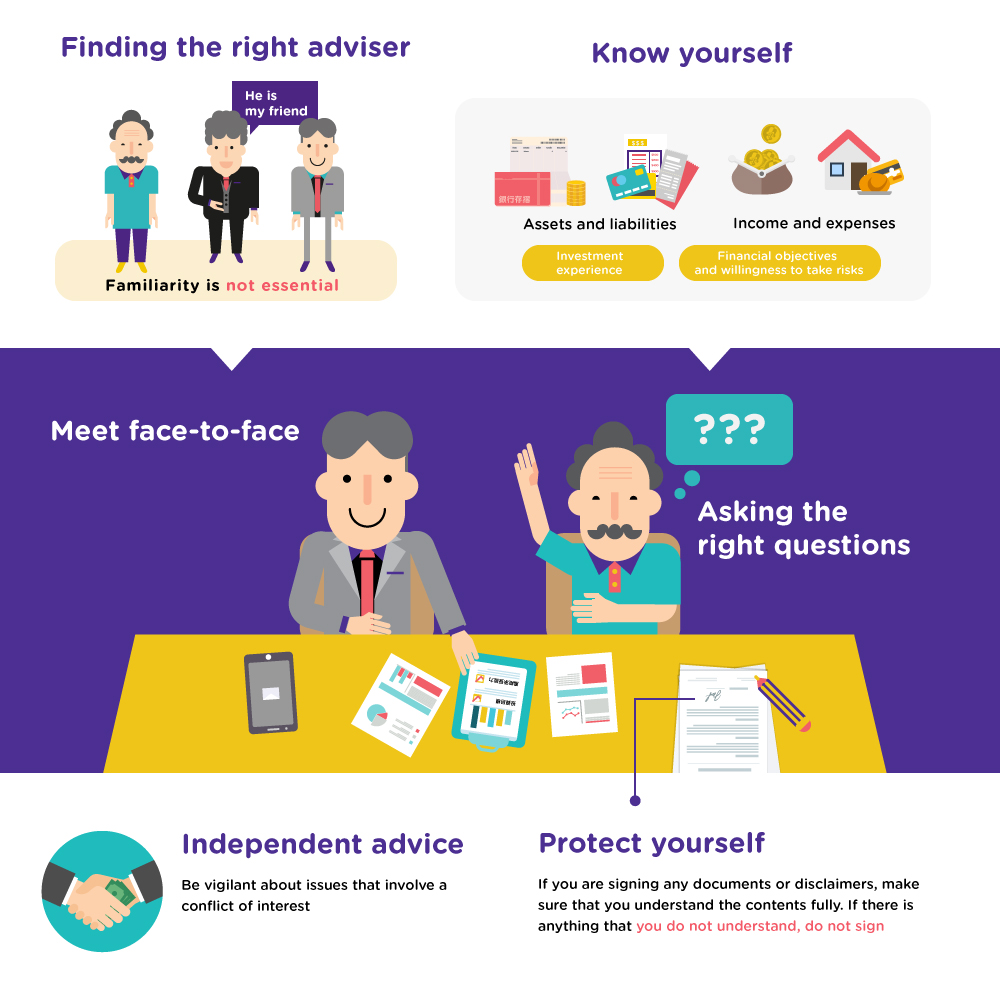Choosing an investment adviser
While we should all manage our own money matters, we may need professional advice from time to time to avoid making wrong turns along the way. Learning how to handle our relationship with investment advisers is very important.
Some points to note when you choose an investment advisor.
-
Finding the right adviser
Familiarity is not essential.
Issues to consider: Does the person have the necessary licences? What kind of experience and professional qualifications do they have? What products and services do they provide?
-
Know yourself
To help your adviser to better understand your situation and tailor recommendations for you, you should list your financial situation and needs including all your assets and liabilities, income and expenses, investment experience, as well as financial objectives and willingness to take risks.
-
Meet face-to-face
Check whether or not your adviser: Is patient to learn about you, gives detailed explanations of the scope of service and charges, explains various products that suit you and does not push you to buy a particular product or service, answers every question you have, does not ask you to make a decision, or sign any documents immediately.
-
Asking the right questions
Why does an investment recommendation suit you specifically? After selling the product, what commission or remuneration does your adviser get? Are there any other options besides the recommended product? Why are other options unsuitable?
If you see anything that you do not understand in any of the documents, it is vital to ask and not keep silent.
-
Independent advice
Be vigilant about issues that involve a conflict of interest. For example, does your adviser have any association with the issuer of the product? Will they receive any monetary or non-monetary benefits from the product's issuer?
-
Protect yourself
If you are signing any documents or disclaimers, make sure that you understand the contents fully. If there is anything that you do not understand, do not sign.
To preserve your own interests, do not put all your wealth and investment matters into the hands of one adviser.




